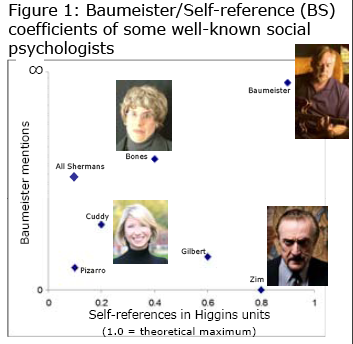The Lovely Dr. ARINA K. BONES, PhD Strikes Again!

Now, Dr. ARINA K. BONES, PhD has presented her latest masterwork Do Social Psychologists Cause Priming Research, or Does Priming Research Cause Social Psychologists? (PDF) at the recent meeting of the Society for Personality and Social Psychology. Here's Matthew Hutson of Psychology Today, reporting in the Brainstorm blog:
For the first study, they submitted dozens of papers on priming research to top social psychology journal. "The absurdity of the findings were intended to prevent the articles from appearing in print." Nevertheless, all were accepted. This submission process was in itself a way to prime the peers acting as reviewers for the journals by exposing them to priming research. It turns out that the psychologists who reviewed the papers produced more subsequent social psychology research than did other psychologists. It appears that priming research may indeed cause social psychologists.
(Identifying the anonymous reviewers presented a hurdle, which Bones and Gosling overcame by analyzing the reviews for self-references and references to the psychologist Roy Baumeister. "Every human has a unique Baumeister/Self-reference (BS) index, providing a linguistic fingerprint," they write.)

I particularly enjoyed the fictitious journal articles...
Table 1: Examples of Made-up ArticlesData collection is ongoing in Study 2, in which unsuspecting graduate students wear an Unobtrusive Head-Mounted Recorder (EAR) that recites descriptions of priming research at 12 random intervals during the day.
Chartrand, T. L., Dalton, A. N., Fitzsimons, G. J. (2007). Nonconscious relationship reactance: When significant others prime opposing goals. Journal of Experimental Social Psychology, 43,719-726.
Dijksterhuis, A., Preston, J., Wegner, D.M., & Aarts, H. (2008). Effects of subliminal priming of self and God on self-attribution of authorship for events. Journal of Experimental Social Psychology, 44, 2-9.
Weinberger, J., & Westen, D. (2008). RATS, we should have used Clinton: Subliminal stimulation in political campaigns. Political Psych, 29, 631-651.
Hassin, R. R., Ferguson, M. J., Shidlovsky, D., & Gross, T. (2007). Waved by invisible flags: The effects of subliminal exposure to flags on political thought and behavior. Proceedings of the National Academy of Sciences, 104, 19757-19761.
- Fake Data Or Scientific Mistake?
Social psychology is reeling from its second research scandal in less than a year, after the Erasmus University of Rotterdam announced the withdrawal of two articles by one of its senior social psychologists. The problematic papers were identified by...
- Feast
Our round-up of links to the latest and best psych writing and broadcasting: The Sherlock Holmes of neuroscience, VS Ramachandran, wrote a piece about case studies for The Telegraph. The first 2012 issue of The British Journal of Psychology is free to...
- Psychopaths Unmoved By Words
Imagine I show you the word “love” and I ask you to classify it as positive or negative. You’ll classify it far quicker as positive, if just beforehand I had showed you another positive word such as “honesty” – a phenomenon that’s known...
- Human, All Too Human (and Alien)
Are You an Alien? To find out, now you too can take the latest Implicit Association Test (IAT)! Human or Alien? The Neurocritic is Human AND Alien. Coming soon: "Tips for Manipulating the IAT." You have completed the...
- Social Priming: Of Course It Only Kind Of Works
Social priming is the field of research about how thinking about or interacting with something (like warm coffee, or old age) can affect later, vaguely related behaviour. (Rolf Zwaan has a useful summary of the theoretical background here and here, and...
